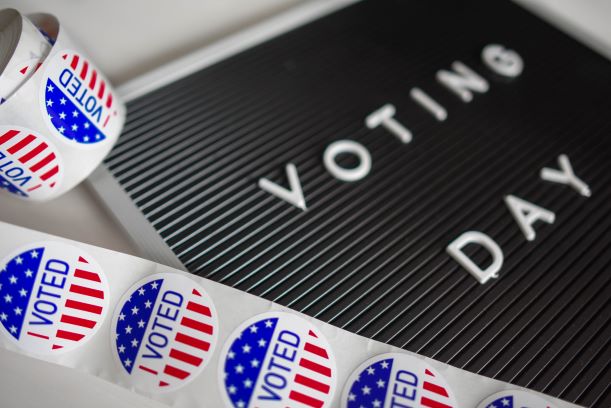Bishop Gerald Glenn was not afraid.
“God is larger than this dreaded virus,” he declared to his congregation. So the leader of New Deliverance Evangelistic Church in Richmond, Virginia defied social distancing guidelines and conducted worship services.
That was last month. On Easter Sunday, the church announced - during services held online - that Bishop Glenn had died of complications from the coronavirus. The late Bishop, undoubtedly a good and decent man of great faith, was not the only minister to go against the directives of the government in avoiding large gatherings. Many have argued, reasonably it seems, that if liquor stores are deemed “essential services”, why are secular authorities ordering churches closed?
Especially on Easter.
In Greenville, Mississippi, church attendees at a drive-in service in the church parking lot, who stayed in their cars with their windows up, were fined $500 by over-zealous police. The Justice Department intervened on behalf of the church and the fines were dropped. There’s been a lot written and said about the impact of restrictions on places of worship during the pandemic. There are those who claim such lockdown orders are unconstitutional. The First Amendment protects the “free exercise” of religion and no government authority can legally trespass on that inviolable sacred right.
Others have claimed the coronavirus is exaggerated - or even non-existent - part of a dark global conspiracy to destroy the American economy and deny Donald Trump a second term. One conservative commentator claimed the coffins piled everywhere in New York City were, in fact, empty. We were not made for social distancing. Though solitude can be good, it’s often hard. We were created for community. We’re anxious for life to return to normal, whatever the “new normal” may look like.
This pandemic has upended our economy, thrown millions out of work and shuttered thousands of businesses. It’s also taken thousands of lives. The world watches Christians, especially those in leadership. It gauges our response to crisis. Conservatives are naturally suspicious of government. They don’t particularly care for it- it is, at its very best, a (perhaps) necessary evil. They are quite resentful to being told by government what they can and cannot do. Any infringement on individual freedom, even under these unprecedented circumstances, is viewed as unconstitutional, unjust and downright immoral. We are wise to question power and its inclinations to corruption. Crisis can be an avaricious opportunity for the unprincipled. We are also wise to remember that the same Constitution that safeguards our personal rights was written and established also to “promote the general welfare.”
Health versus jobs. It’s a conundrum. When do we re-open America? How do we do it? Who decides? In these uncertain and confusing times, Christians should abide by Daniel Webster’s prescient observation: “Whatever makes men good Christians makes them good citizens.” Peter tells us that by our honorable lives - by doing good and being good - we may silence those eager to accuse us (I Peter 2:15). Let’s not make it easy for others to say of the gospel, “Christianity? You’ve got to be kidding!”
“Preach the gospel at all times,” said Francis of Assisi. “When necessary, use words.” Let’s be careful about what we read. Let’s be careful about what we think. Let’s be careful about what we believe. And let’s be careful about what we say. Let us leaven our convictions with discernment and compassion. None of us become medical experts by reading Facebook. No matter the issue, emotions of the moment or worthiness of the cause, we must never forget we bear the image of Jesus Christ as his followers. It’s true: “The strength of the Church is not the power of its institutions but the authenticity of its witness.”
These trying days give us cause to ponder our duty before God. Should we put our own interests and desires ahead of the health and lives of others? Is congregating more important than sacrificing? Should we put the First Amendment ahead of the Great Commandment? Should we deny ourselves for the sake of others? Or is it right to risk others for the sake of our wishes and welfare?
We’re anxious to get together to praise Jesus. Understandable. Is that what he wants us to do? Right now? Does it honor him to disobey our leaders? What does submission to authority mean? Or do we submit to government authority only when we agree with it and only when it suits our opinions and perceived needs? Must every disagreement be just cause for disobedience?
Questions worth considering. Not always easy to answer. Paul told the Christians in Rome, living under much more difficult conditions than are we, to honor civil government by submitting themselves to it. He said such authority comes from God. He has ordained it. When we obey the law, honor our leaders, pay our taxes and do what is right as citizens, Paul says, we bring glory to God. Yes, there are times when, as Peter told the authorities, “we must obey God rather than men” (Acts 5:29). There is a time for civil disobedience - and to pay the price of conviction and justice. When we defy civil authority in the name of conscience we should make sure we know what we’re doing - and what it’s costing.
How do we know? When asked about paying taxes, Jesus said, “Render unto Caesar the things that are Caesar’s and unto God the things that are God’s” (Mark 12:17). He didn’t say which was which. He did imply we have a moral and spiritual responsibility to both. After Paul outlines our duties before government, he concludes by telling us why. All our obligations, he says, are wrapped up in something very simple and profound.
“Love your neighbor as yourself. Love does no harm to a neighbor. Therefore love is the fulfillment of the law” (Romans 13:9-10).
It’s a good guide to good citizenship.

